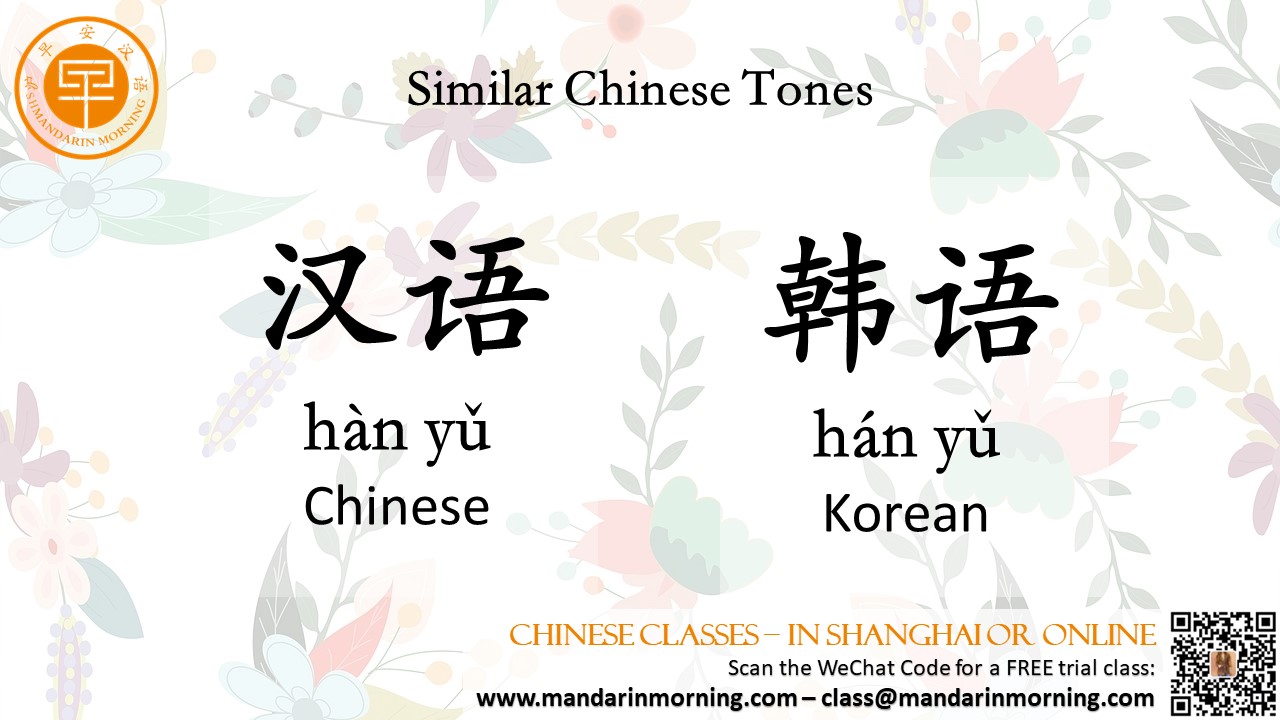【Learn Chinese】Similar Pronunciation, Different Meaning: Chinese Homophones for Beginners (Part 2) |
| Because of the different tones in the Chinese language some words can sound very similar but have very different meanings. Here is part two of our articles about Chinese homophones.  Ask me 问我 vs Kiss me 吻我 Imagine you’ve just finished a presentation in the office and are opening the floor for a Q&A session. You want to encourage your Chinese colleagues to ask you any questions, which in Chinese is 问我 (wèn wǒ), meaning “ask me.” However, a slight misstep in your Chinese tones, and you might end up saying 吻我 (wěn wǒ), which translates to “kiss me.” Now, that would leave your colleagues quite puzzled about how to respond! Mastering this subtle difference will keep your office interactions professional and on point! Chinese 汉语 vs Korean 韩语 In the office tea room, you’re proudly talking about your proficiency in “Chinese.” However, a slip in tone while trying to say 汉语 (hàn yǔ), the word for “Chinese language,” leads you to accidentally say 韩语 (hán yǔ), which means “Korean language.” Therefore, when you say: 我的汉语很好 (wǒde hànyǔ hěn hǎo) – My Chinese is good. Make sure not to confuse it with: 我的韩语很好 (wǒde hányǔ hěn hǎo) – My Korean is good. Eye 眼睛 vs Eyeglasses 眼镜 At the eye doctor’s, a slight mix-up in pronunciation can lead to a humorous misunderstanding. You’re trying to explain that your eyes hurt, but you accidentally end up suggesting that your eyeglasses are where the pain is because of the wrong Chinese pronunciation you used. So, when you tell your doctor: 我的眼睛很痛 (wǒde yǎnjīng hěn tòng) – My eyes are very painful. Make sure not to mix it up with: 我的眼镜很痛 (wǒde yǎnjìng hěn tòng) – My eyeglasses are very painful. Buyer 买家 vs Seller 卖家 In a casual conversation with your doctor, you’re trying to explain your profession. You intend to say you’re a “buyer,” which in Chinese is 买家 (mǎi jiā). However, a small slip in pronunciation, and you might accidentally claim to be a “seller” or 卖家 (mài jiā). No wonder the doctor looks puzzled and starts inquiring about the products you sell! Understanding and pronouncing these terms correctly will help you avoid such mix-ups and clearly convey your occupation! Beijing 北京 vs Background 背景 You intend to share that you’re visiting “Beijing,” which in Chinese is 北京 (běijīng). However, a little mix-up in pronunciation, and suddenly you’re talking about heading to a “background’ or 背景 (bèijǐng)! When you say: 我要去北京 (wǒ yào qù běijīng) – I’m going to Beijing Make sure not to confuse it with: 我要去背景 (wǒ yào qù bèijǐng) – I’m going to background. |